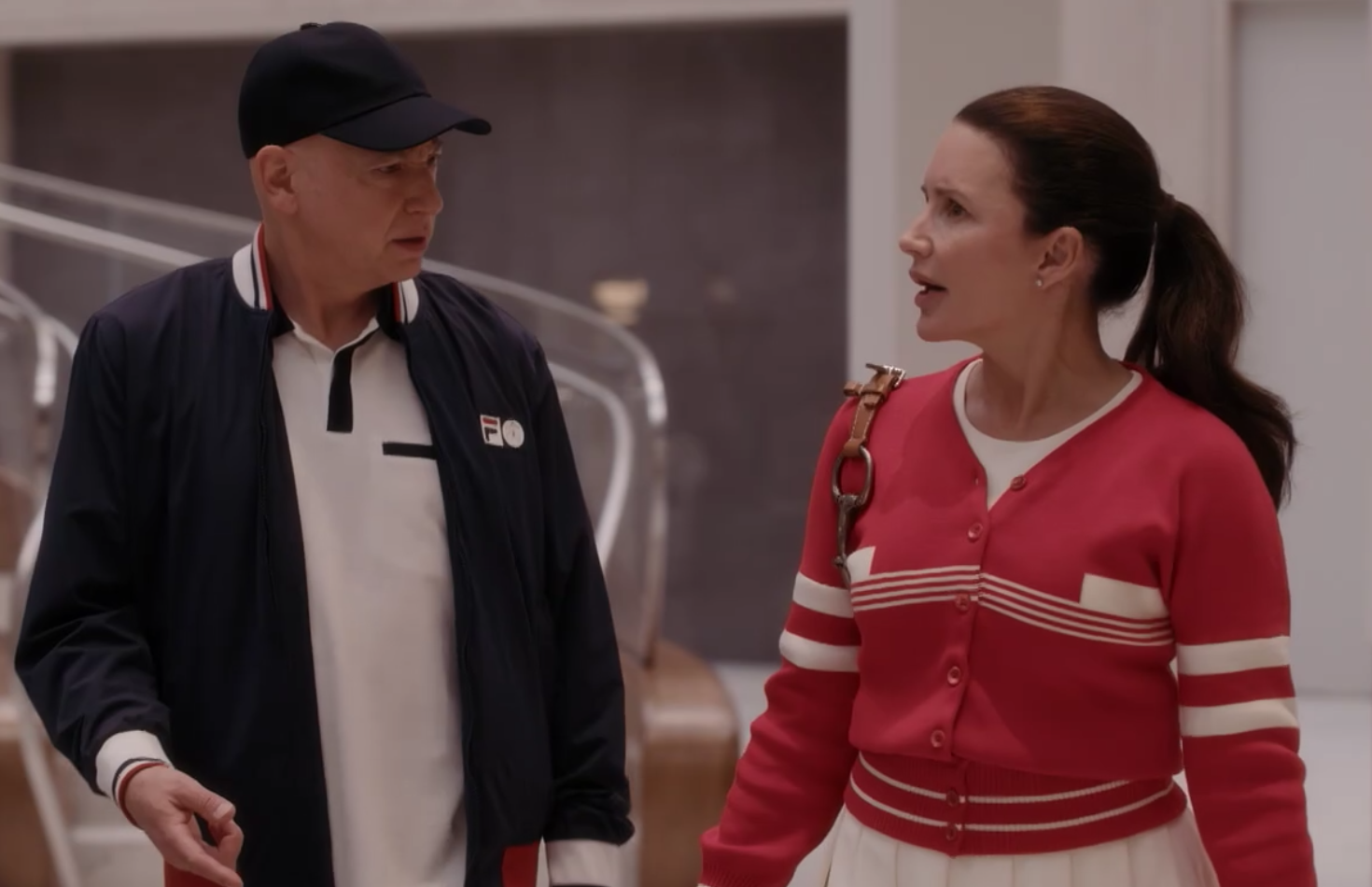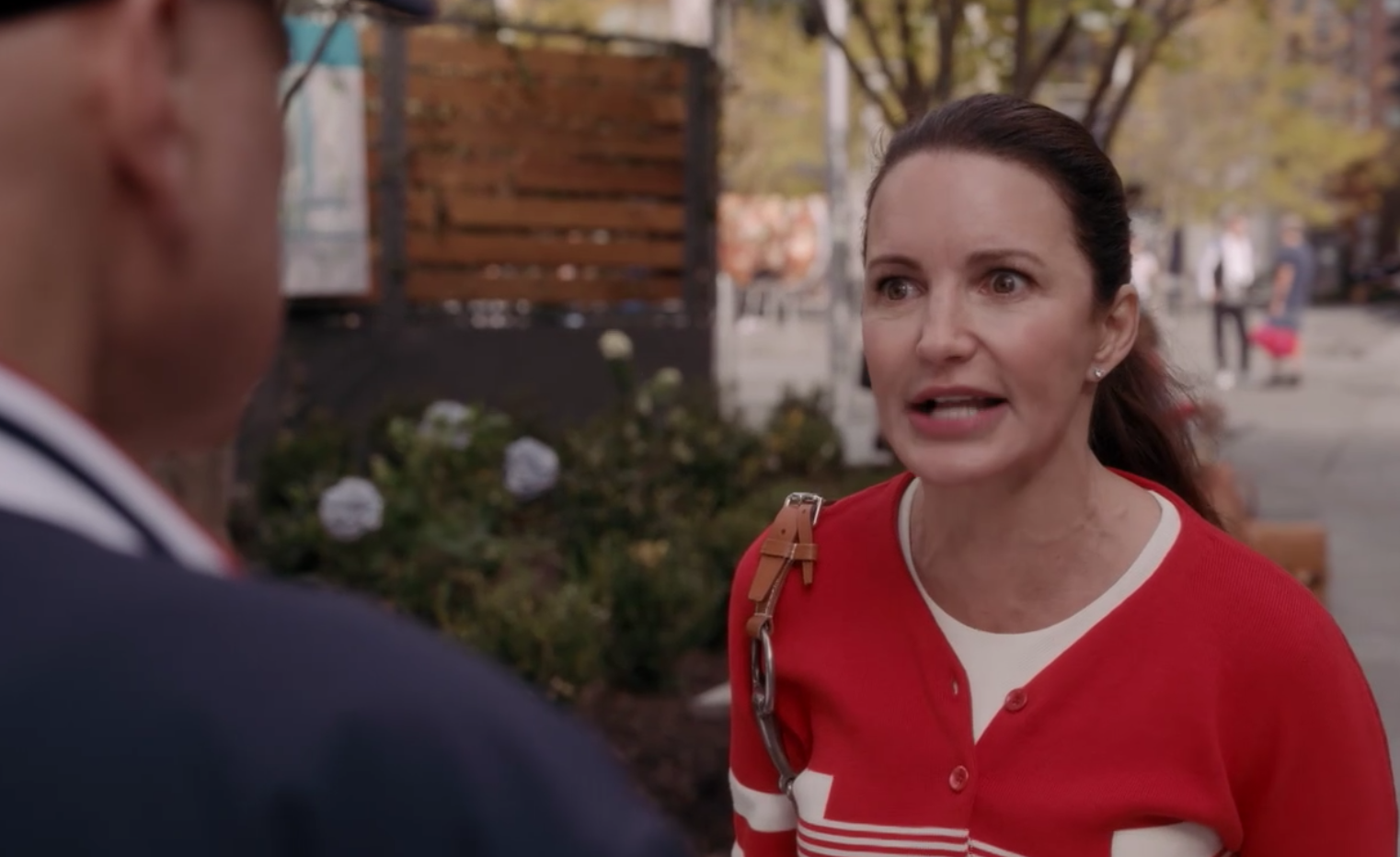News feed
“Women apologise to the whole world all day long for everything,” Charlotte tells a bewildered Harry on last week’s episode of And Just Like That. They had been playing a heated game of tennis against the Wexleys, and – after Harry mansplained the game to her – Charlotte went for a winning shot… at the same time as Harry. He fell over, got mad about it, and asked for an apology. Charlotte, on the other hand, had had enough. She wasn’t apologising for an accident that was, really, both of their faults.
This storyline hit a nerve with me. I’m with Charlotte here. Women are always apologising – often for things they absolutely don’t need to be sorry for.
I became hyper-aware of my incessant use of the word “sorry” for the next few days. One particularly alarming moment was when a woman in the street kindly asked me for directions to the nearest ATM.
“Oh, there isn’t one around here anymore, sorry. You’ll have to go down to the next block,” I said. Then, as if one sorry wasn’t enough, I grimaced. “I’m so sorry!”
What was I sorry for? I didn’t personally remove the ATM. I guess you could say I was using “sorry” as an empathetic term, feeling for her and the long walk she had ahead. “I’m sorry this is your situation,” it says. “I wish things were different”.
Sure, this is a lot of analysis for a very simple exchange that this woman definitely did not think twice about once she trudged off to find an elusive ATM. But it speaks volumes about how women – including myself – immediately default to apologetic whenever we disrupt or disappoint.
Disruption like speaking up in client meetings to questioning the decisions of management. Disappointment like burning dinner after a long day at work, or simply not having the answers to everything.

When I apologise for matters that are out of my hands, or for actions, words or requests that I am not apologetic for at all, I am doing it to placate. I use sorry to soften the blow, essentially. I’m uncomfortable with appearing confident, because confidence in a woman is always taken away from us and made to be ugly.
When we’re confident, we’re suddenly bossy. We’re “that bitch” with an overinflated ego. We’re ungrateful. We’re arrogant. We’re not team players.
Men, I’ve found, don’t do this – they ask for what they want and don’t have this default apologetic response in life. Not necessarily in a rude or arrogant way, either. They simply don’t feel the need to soften everything that comes out of their mouths. Confidence, for most men, comes easily.
Obviously this is all deeply rooted in a history of misogyny. Women have long been expected to be meek, mild, inoffensive and gentle. You can see this acted out most prominently, I feel, in the workplace. While we may have made our way into previously male-dominated spaces like boardrooms, business meetings and positions of power, we still find ourselves under pressure to be soft in our approach to everything.
“I don’t agree” becomes “Sorry, I’m not sure I agree.”
“Actually, that’s not correct” becomes “Oh, I don’t think that’s what happened, sorry.”
“I can’t file this by Monday” becomes “I’m so sorry, I just don’t think I’ll be able to file this by Monday.”

Meanwhile, men are out here making their requests boldly and unapologetically. Men speak with confidence where women tend to soften all their requests and opinions until we appear completely under-confident, even if we’re sure of what we’re saying or asking.
Why? Because women are never confident in the workplace. They’re controlling. Shrill. Demanding.
Confident men, well they’re called direct, powerful, inspiring.
This is obviously not limited to the workplace. As psychologist Rachel Green from The Emotional Intelligence Institute told the ABC in 2020, even back in the middle ages women were being punished for speaking up.
“It was called the Scold’s Bridle and was intended to humiliate women,” Green said of a torture device that would be locked to a woman’s head if she spoke out in public or argued with her husband.
Now, we may not get locked into a torture device for daring to be as bold and unapologetic as men, but it’s definitely a battle for many of us to be boldly upfront rather than diluting our message to soften its blow, no matter how minor.
Since my realisation this week, I’ve tried to be more self aware. For example, I wrote an email making a few work-related requests a few days after watching And Just Like That, and rather than peppering it with “sorry” and “if that’s okay”, and the myriad of other gentle terms we use to make the email “polite” (when really, we are just conditioned to think this is politeness), I just… asked. For what I wanted.
If my response was “no”, I would of course send a respectful reply accepting this answer. It’s not about turning all these apologies into straight-up rudeness. But it’s not rude to be direct. I am going to make the statements I believe in and ask for what I want, without belittling my requests and arguments with “okay if not!”
I, like Charlotte, am done apologising.
Melissa is a freelance writer. You can find her on Instagram and Twitter.









